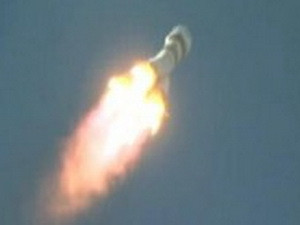Russia launches satellite carrying mice, snails and fish
Russia's Bion-M scientific satellite carrying dozens of small animals for scientific research was launched into space on April 19 by a Soyuz 2.1a rocket from Kazakhstan's Baikonur cosmodrome and has entered its planned orbit.
The satellite carried many mice, snails, fish and some microorganisms, in which the main research subject was mice. This is the first time mice have flown into space on a biological satellite.

Soyuz 2.1a rocket. (Source: nasaspaceflight.com)
Scientists will study changes at the genetic level in mice during long-duration flights.
For mice, 30 days is a long time in the life cycle. So it is possible to observe changes at the cellular and molecular level and make predictions for long-term human flight.
Scientists will observe the mouse's activities during the flight using cameras in real time, said a representative of the Institute of Biomedical Problems of the Russian Academy of Sciences.
Bion-M will stay in orbit for about a month, then return to Earth with scientific results.
In addition to the Bion-M satellite, the Soyuz rocket also carried into orbit six small Russian space devices, three German devices, and two devices from the US and South Korea./.
According to (TTXVN) - VT






